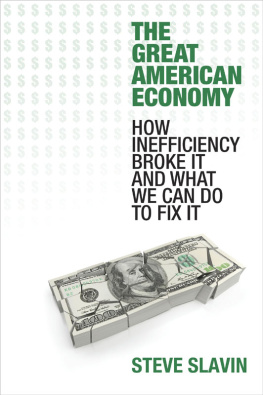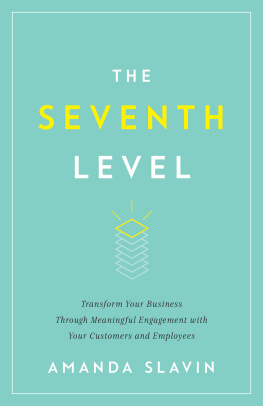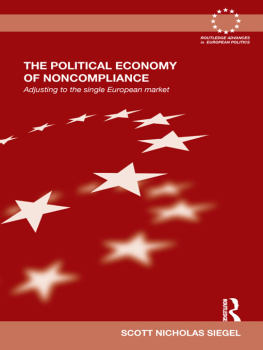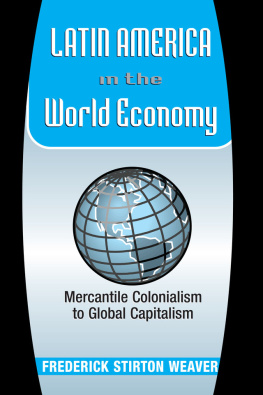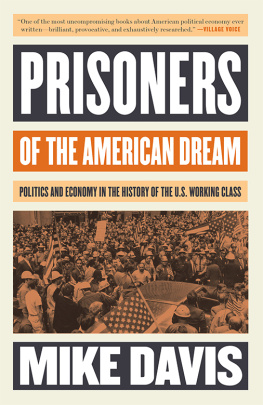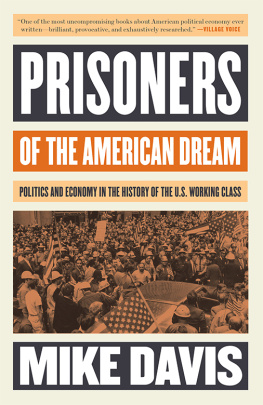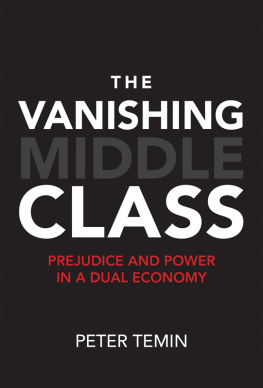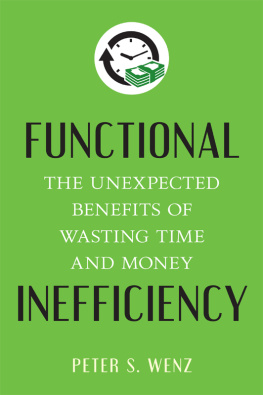It took many years to write this book and to find the right publisher. Steve Harris, of CSG Literary Partners, submitted my manuscript to Steven L. Mitchell, the editor in chief of Prometheus Books, and the rest is history. When we had a conference call, there was some confusion as to who was addressing whom since each of us was a Steve.
The editorial assistant Hanna Etu and copyeditor Jeff Curry I worked with at Prometheus made hundreds of suggestions, which greatly improved the book. Lisa Michalski and Jill Maxick were very helpful in getting the book reviewed and in accessing the college market.
Over the years, my fellow economist, Jim Watson, provided a great deal of feedback and encouragement. I also want to thank my old high school friend, Martha Weinstein Alpert, for proofreading the first draft.
Finally, I'd like to thank my first editor, Gary Nelson, who signed me to write an introductory economics textbook, now in its eleventh edition. Gary thought it would be a nice idea to publish a book that students could actually understand.
The economy is fundamentally sound.
President Herbert Hoover, 1931
Because our poor economic performance has been such a hot topic, there is no shortage of books explaining what went wrong and how it can be fixed. Each author believes that if we can solve just one or two problems, we can get our economy back on course. It has long been part of our can-do national psyche that there is a simple solution to almost every problemfrom curing bad breath or erectile dysfunction to bad credit or body odor. So common sense tells us that there must also be a simple solution for our bad economy.
Most Americans agree that our economic troubles stem from just one or two basic causes. On the political right, Tea Party supporters think that if we drastically reduce federal government spending, taxation, and regulation, we could restore our economic state of grace. And those on the political left want to raise taxes levied on the rich and on highly profitable corporations and to redistribute the proceeds to the middle class, the working class, and the poor.
OUR ECONOMIC FUNDAMENTALS
Donald Trump's 2016 presidential campaign slogan was Make America great again. He observed that while some people were very prosperous, tens of millions of Americans had been left far behind. How would he fix our economy? Mainly by cutting taxes, government spending and regulation, bringing back manufacturing jobs that had been shifted to other countries, and negotiating more advantageous trade treaties.
He also proposed repealing and replacing the Affordable Care Act (aka Obamacare), raising military spending, spending one trillion dollars to rebuild our crumbling infrastructure, and building a wall on our border with Mexico to keep out illegal immigrants.
Because President Trump was in office for just one hundred days before this book went to print, it was far too soon to know whether Congress would pass the legislation necessary to put his proposals into effect. Indeed, with the exceptions of a $54 billion defense spending increase for fiscal year 2018 and a strong effort to repeal and replace the Affordable Care Act (Obamacare), the Trump administration provided few other economic policy specifics until April 26, 2017, when Trump released his tax plan, which called for rate cuts in the corporate income and personal income taxes and the elimination of the inheritance tax.
During his first one hundred days in office, President Trump did not have any notable legislative triumphs, but he did sustain a major setback. Although he spent weeks negotiating with Republican Congress members over a bill authored by House Speaker Paul Ryan to repeal and replace Obamacare, the bill was withdrawn when it became apparent that it would not be passed.
OUR TOP EIGHT FUNDAMENTAL PROBLEMS
Whenever Sen. John McCain looks back at the 2008 presidential campaign, he will probably never forget the day he may have lost the election. It was September 15 when he proclaimed, The fundamentals of the economy are strong. In politics, as in stand-up comedy, it's all in the timing. So when Lehman Brothers filed for the largest bankruptcy in US history just hours later, McCain appeared very much out of touch.
But was he wrong? Before answering, please look at the list of our top eight fundamental problems shown below.
- Our inefficient transportation system: because we go almost everywhere by car, Americans spend twice as much on transportation as the citizens of most other rich nations.
- Our failing schools: just half of our eighteen-year-olds can function at an eighth-grade level.
- Our sick healthcare system: healthcare costs nearly twice as much per capita in the United States than it does in most other economically advanced nations.
- The military-industrial complex: we account for nearly 40 percent of the world's military spending.
- Our bloated financial sector: this sector is diverting increasing amounts of savings from productive investments into speculative activities.
- Our huge and growing make-work sector: more than fifteen million Americans hold jobs that do not produce any useful goods or services.
- Our shrinking manufacturing base: much of what had once been Made in the USA is now made in Japan, China, South Korea, Mexico, and other nations.
Let's consider the first two items on this list.
One very important factor in our rise to economic power was the world-class public transportation system we had built by the turn of the twentieth century. Since the 1930s it has been almost completely destroyed as we became increasingly dependent on automobile transportation. Nearly all our global economic competitors have far better public transportation systems.
By 1900 we had built the world's first free, universal public education system, providing our nation with a well-trained and well-educated labor force. Now, just half of our eighteen-year-olds can function at an eighth-grade level. On international examinations, our students usually rank below those from other economically advanced nations.
During the last eight decades, we have managed to turn some of our economic strengths into weaknesses. Are you old enough to remember the old Charles Atlas cartoon ad showing a beach bully kicking sand into the faces of a skinny guy and his girlfriend? That weakling took the Charles Atlas bodybuilding course, which soon enabled him to beat up the bully. Our nation seems to have taken a Charles Atlas course in reverse. We are well on our way to converting ourselves from an economic colossus into a ninety-seven-pound economic weakling.
Clearly then, many of the fundamentals of our economy are not strong. Henry Clay, a three-time presidential candidate, once remarked, I'd rather be right than president. John McCain, sadly, was neither right nor president.
SIX ADDITIONAL PROBLEMS
We cannot reverse our economic decline without solving these eight fundamental problems. But even that would not be enough. These problems are largely responsible for six additional problems, which must also be addressed:
- There is a great shortage of decent jobs.
- The average hourly wage rate (adjusted for inflation) for nonsupervisory workers has not increased since 1973.
- Our income distribution is becoming increasingly unequal.
- Our growing permanent underclass perpetuates itself from one generation to the next.

